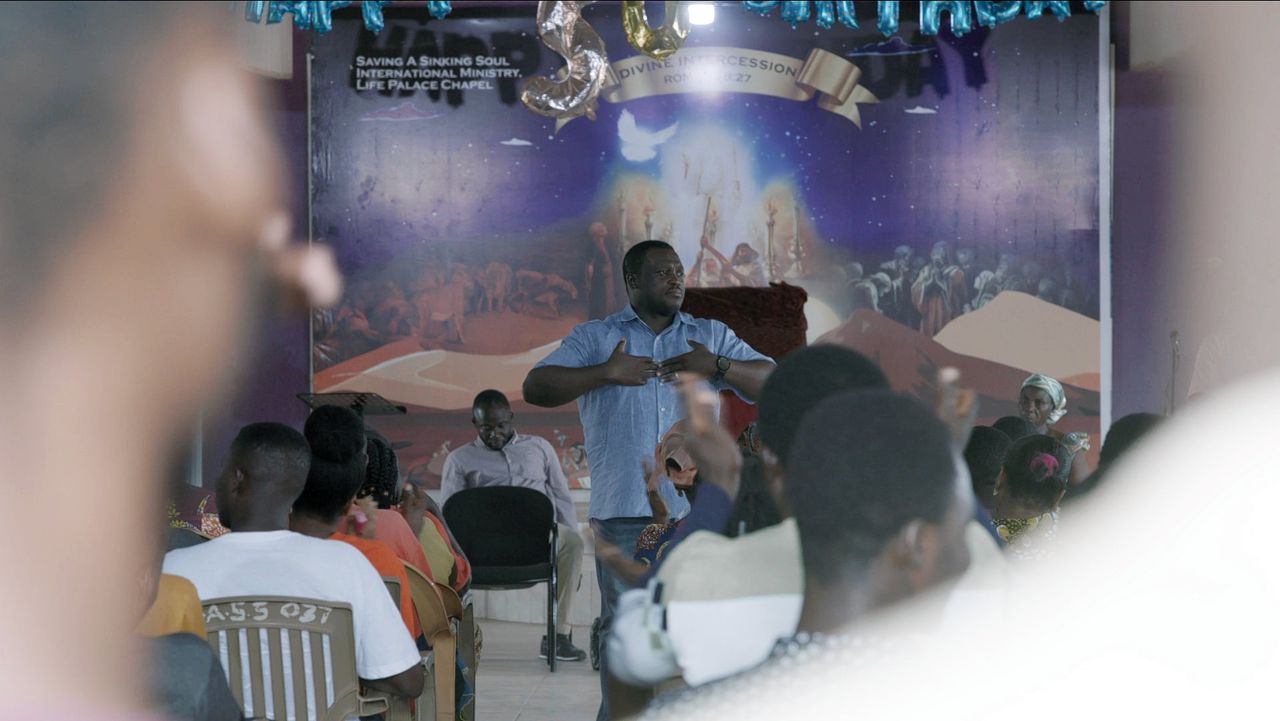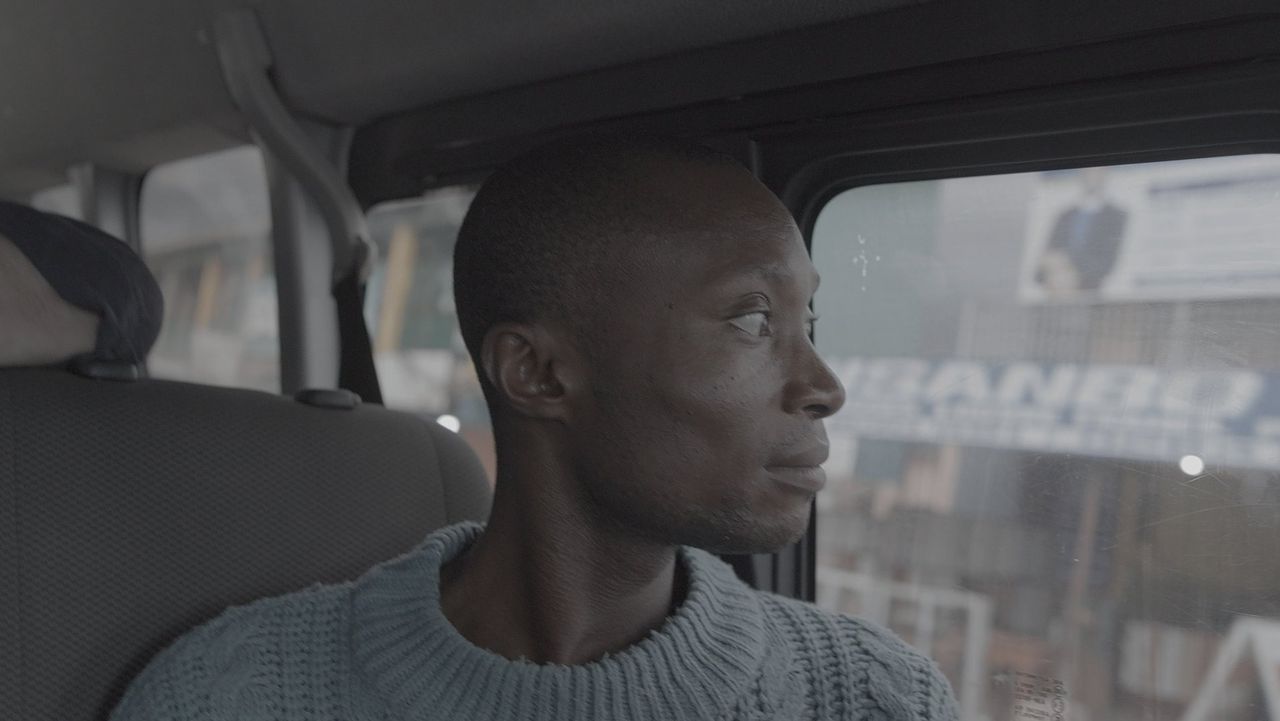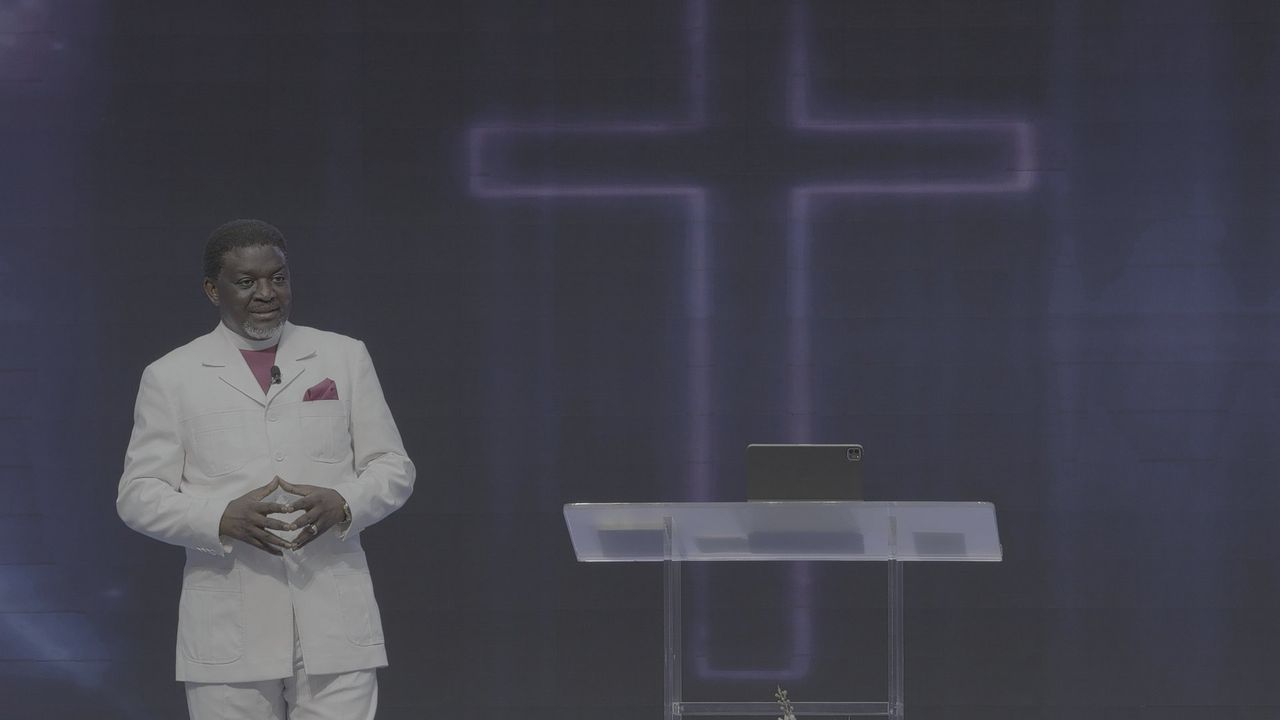Behind the anti-gay laws in Africa are conservative Christian forces from the US and Europe
:format(webp)/s3/static.nrc.nl/bvhw/files/2023/06/untitled-design-1.png) |
| The rights of LGBTI people are under increasing pressure in countries such as Ghana. With the photo series The Promotion of Proper Human Sexual Rights and Family Values, the Senegalese-Canadian photographer Clara Watt wants to give a face to the LGBTI community in Ghana in protest of the stricter anti-gay legislation in the country. The photo shows a 27-year-old gay man. “The LGBTI community is where I found my chosen family and love. Here I realized that I am not alone in the world.”📷 Clara Watt |
Ghana's anti-gay law The number of African countries, including Uganda, Nigeria and Ghana, that are forcing LGBTI people underground through legislation is growing. With the help of a conservative and right-wing radical lobby that fights for "family values" from the US and Europe.
Really, MP Samuel Nartey George doesn't want to meddle in other people's sex lives. “You should know what you do in your bedroom,” he says, steering his Toyota Landcruiser through the Friday afternoon traffic of the Ghanaian capital Accra. "None of my business."
With a press of his gold remote control, he turns on the siren and a tricolor of flashing lights. A privilege exclusive to politicians in this country. Traffic in front of him backs up. Like Moses and the sea.
“What I can't stand is if you want to push your personal choices down my throat. And she wants to normalize for me and my children," he continues. His left hand rests loosely on the steering wheel, the right hand points in the direction of his passenger.
George just wants to say: you have started. Homosexuality is a Western import product against which Ghana should be protected, he believes. “The LGBTI movement is funded from Europe and the United States,” he assures.
George is the Olivier Bommel type, cheerful, quick-tempered, quick-witted, a pacesetter who easily gets a room to chuckle. Although he studied at the University of London and the London School of Economics, his language is nationalistic, almost populist. Because of his street fighter mentality, the Ghanaian press calls him 'the lion'. He puts on a big smile when you remind him of that. A nickname that he redeems as a prominent member of parliament of the Ghanaian opposition by lobbying for one of the strictest anti-gay laws in the world.
His bill does not only want three to five years in prison for every Ghanaian who identifies as gay, trans or queer. But also ten years in prison for anyone who promotes or supports the community, such as activists, lawyers, and journalists. The law requires healing therapy and obliges every Ghanaian to report suspected LGBTI people to the police hotline. After Uganda and Nigeria, democratic Ghana is about to join a growing number of countries in Africa that are forcing LGBTI people underground through legislation.
Radicalization by extremist Christians
George's sudden radicalism has surprised many Ghanaians. “Sam George was never outright homophobic. I know that he associates with gays in his immediate circle. He was recently at the funeral of a prominent member of our community,” says Fischere Richard Kwofie at a sandwich bar in the city center. Kwofie is a lawyer and director of QuGEF, an NGO that fights for equal rights.
According to Kwofie, the number of violent incidents against LGBT people in Ghana has increased exponentially since George's bill. The police do not keep numbers and are sometimes involved in violence themselves. A friend was badly beaten two months ago when officers raided a men's party. Kwofie himself was beaten up in a taxi bus because a fellow passenger thought he was effeminate. “I receive daily reports of new attacks against my community. Many guys are lured into the trap by paw rammers through the dating apps. For Sam George, it's all a political chess game. For us, the consequences of his law are very serious.”
So what happened to George?
“We know that Sam George is associated with extremist Christians from the US and was recently visiting the United States for a similar group,” said Kwofie. This transatlantic link with LGBTI repression in Ghana is made by various sources.
“Sam George was in Salt Lake City, Utah, late last year for a family values conference,” confirms emeritus anthropology professor Takyiwaa Manuh of the University of Ghana. She is part of a 'coalition of the wise' that opposes the new legislation. Across Africa, she says, such laws are being pushed by conservative groups in the US, Europe and Russia. “There is a sudden interest in African families there, not because they are concerned about our well-being, but because of LGBTI.”
One of the main inspirations for Sam George, according to the professor, is Sharon Slater. Slater is a Mormon and the head of Family Watch International, a fundamentalist Christian lobby group that claims on its website to fight for "family values."
The group is strongly opposed to abortion, sex education, contraception and LGBTI. Slater is also a founding member of the World Congress of Families (WCF), which congr
The group is strongly opposed to abortion, sex education, contraception and LGBTI. Slater is also a co-founder of the World Congress of Families (WCF), which holds conferences for religious leaders, opinion formers and politicians worldwide. The WCF stages included Hungarian Prime Minister Viktor Orban in 2017 and right-wing radical Giorgia Meloni, now Prime Minister of Italy, in 2019.
Sam George (above), in a denim shirt, is campaigning for re-election as an MP. Activist and director of an NGO fighting for equal rights Fischere Richard Kwofie (bottom left). Archbishop Charles Agyinasare, millionaire and owner of a TV station (bottom right).
Images VPRO
The organization appears in many African countries, such as Uganda and also in Ghana. According to figures from Open Democeacy, fundamentalist Christian groups have spent an estimated $280 million since 2007 fighting abortion and gay rights around the world, and about $50 million has been spent in Africa appeasing politicians.
Unicef involvement
During an interview with Ghanaian television in 2019, Slater expressed her concern about the interference of children's rights organization Unicef and foreign embassies with sex education in Ghana and other African countries. “Sweden has pledged millions for sex education in Uganda, I mean Ghana, I misunderstood. The Netherlands sponsors the The World Starts With Me project. That teaches children that you decide about your virginity and about anal and oral sex.”
Almost identical words sound in Sam George's car. According to George, UNICEF's sex education campaigns “encourage four-year-olds to masturbate. They urge them to discover their sexuality. Boys with boys. Girls with girls.” According to the UNICEF website, the program is intended to protect students aged twelve to nineteen against unwanted pregnancies and HIV.
George frankly admits his visit to Slater's organization in Utah. “I was at the Family Watch International convention. There's nothing secret about that. I even put it on my Facebook page. It was a congress of like-minded people from Africa. There were MPs from Kenya, Uganda, Tanzania, Zambia, Zimbabwe. I presented my bill to them and we talked about it. They thought it was a good law. We received legal advice from MPs and from Sharon Slater. She is an expert in this field.”
Although George and Slater say they fight against Western influence, the first legislation outlawing homosexuality in Ghana dates back to 1861, a legacy of the British Empire that banned sodomy in more than 70 colonies.
In independent Ghana a century later, that law was perpetuated in a ban on “unnatural carnal knowledge”—sex between men—but the law was barely enforced. Ghanaian traditions even accept the gray area between men and women in their language, activist Richard Kwofie explains. “In our language we have words for man-woman, obla-yoo and woman-men we call obaa barima. It was never a problem until recently.”
According to George, he was suddenly shaken awake at the end of 2021 by reports on social media about the opening of a culture house of the LGBT community at the end of 2021. The community called it a "safe space" for gatherings. But George saw it as the headquarters of a movement that wants to subject Ghana to homosexuality. The biggest thorn in his side: the presence of European diplomats and the Australian ambassador at the opening. After photos of the opening circulated on the internet, the police were dispatched and the house closed. “That center tried to push homosexuality to become the norm in Ghana,” says George. "Then the boat was on."
The ambassadors of Australia, the European Union and the Netherlands do not want to comment on the statements made by George or Sharon Slater. “It is wiser that we do not comment on this subject,” says a diplomat who wishes to remain anonymous.
George's law needed little outside help. Opinion polls show that more than 90 percent of the population support harsh punishments. More than 70 percent of Ghanaians call themselves Christian, more than 30 percent more than around independence in 1957. The charismatic Pentecostal churches, in particular, are growing rapidly and are taking up more and more space in and outside the capital with garish billboards and church buildings.
Archbishop on golden throne
On Sunday morning there is traffic jam in the parking lot of the Perez Chapel International, one of the richest Pentecostal churches in Ghana. Under a gold-colored 14,000-seat dome, worshipers gather in their best attire. High heels hurry up the stairs.
At exactly nine o'clock MP George also parks his Toyota Landcruiser in front of the main entrance. He is dressed in the same white as Archbishop Charles Agyinasare. The archbishop is the author of dozens of self-help books, owner of a TV station, multimillionaire and, according to an opinion poll, one of the twenty most influential Ghanaians. The archbishop sits on the dais next to a golden throne. During the service, he repeats several times the bank account number on which his followers can support him financially.
I will still be gay when I get out of prison
After the service, Sam George calls the archbishop "one of his most important cheerleaders." The archbishop nods. “Recently I went to the president of parliament with other church leaders and said: our church is waiting for the law. The Scriptures state that homosexuality is unnatural. We fully support him,” he says with a nod to the MP.
International forces are fighting back. After a visit by US Vice President Kamala Harris in late March, Ghanaian President Nana Akufo-Addo said that "substantial elements of the law" would be changed. Which adjustments he did not explain. The president of Uganda, Yoweri Museveni, also promised to add water to the wine, but still signed the law last week. George insists his law will remain "rigid and strict."
Many in the LGBTI community say the law forces them to leave Ghana. But activist Fischere Richard Kwofie stays in his homeland anyway. “How can you forbid my identity?” he asks. “I will still be gay when I get out of prison.”
Also watch the documentary Soldiers of God, Frontline, NPO2.



Comments
Post a Comment